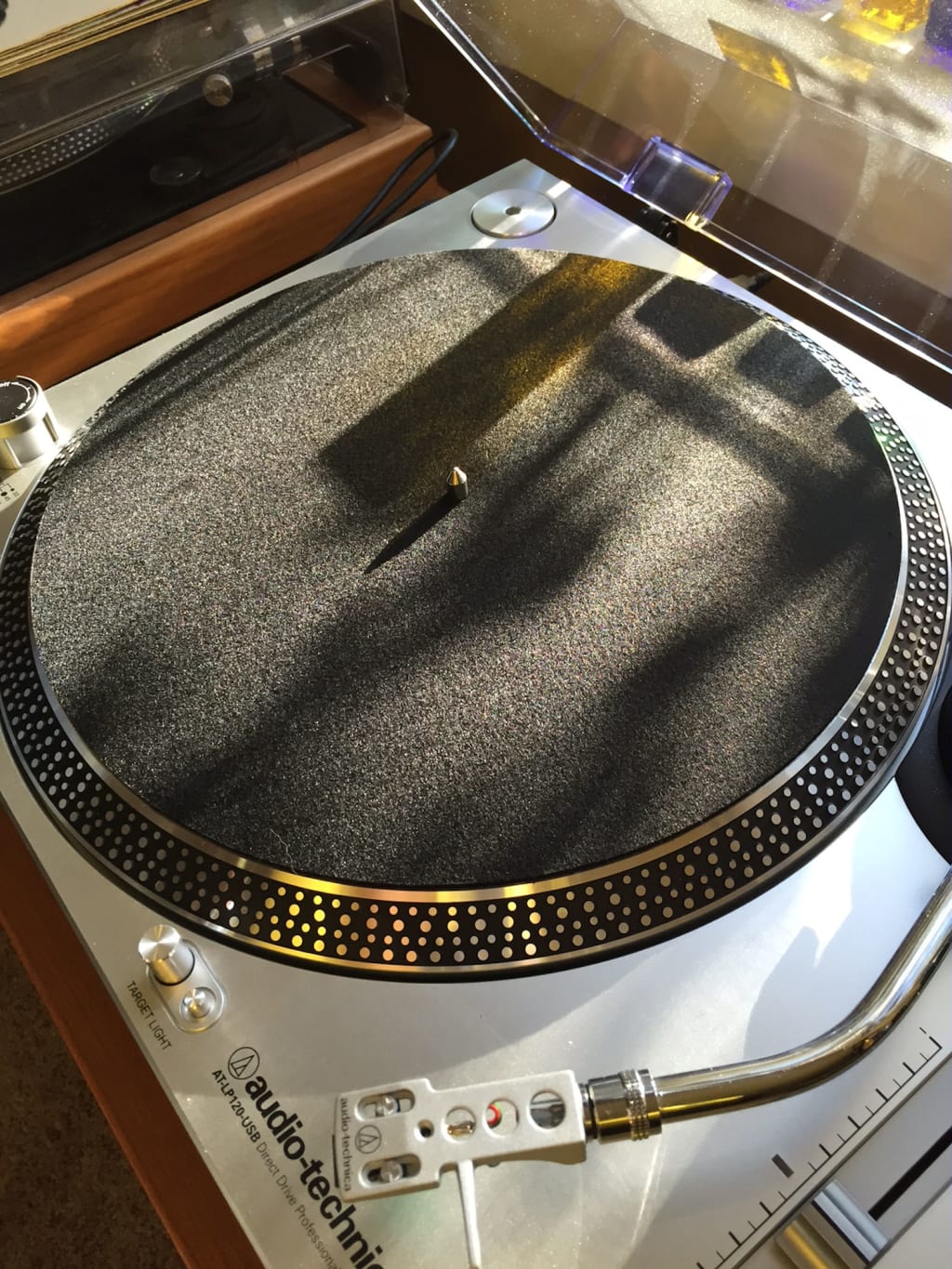Did I Help Make Ooga-Chuka a Top 40 Hit?
A True Story

Now, I’m not Forrest Gump, but I have had a few minor brushes with history in my life and, oddly enough, one of them involves Blue Swede’s cover of BJ Thomas’ classic song, Hooked on a Feeling, known for its Ooga-Chuka, Ooga-Ooga-Ooga-Chuka chant. You see, in 1974, I was a sophomore at The University of Chicago, living in one of the dorms: Thompson House in the now-demolished Pierce Tower. Believe it or not, Thompson House claims credit for making Blue Swede’s version of Hooked on a Feeling a hit in the United States. Yep, we claim credit for making a song a #1 hit.
How?
Well, one night someone in the dorm was listening to an obscure FM radio station—I don’t remember which one anymore—which played stuff that was well outside of the Top 40 hits. You probably couldn’t get them to play a hit if you tried. They played Ooga-Chuka and this fellow thought it was pretty funny and pretty catchy. True enough if you’ve ever heard it. (Strange, but true, Blue Swede’s was the second cover to use the Ooga-Chuka background, following Jonathan King’s 1971 version, which hit #23 on the U.K. charts in 1971 and which based the Ooga-Chuka chant on Johnny Preston’s 1959 song, Running Bear.)
In any case, this fellow in my dorm wanted to share the song with other people around the halls, but of course there were no MP3 players and he didn’t own the vinyl record, so the only way to accomplish that was to gather a few guys in his room and call the radio station and request that they play the song again and then wait until they did. Eventually they did and those guys did pretty much the same thing.
It’s tough to find ways to amuse yourself on the campus of The University of Chicago, especially during the gray days of winter.
After that process repeated itself a few times, some fellow, whose name is lost to the mists of history, but may have been George Swinton, proposed that everyone call into the radio station to request the song so that they would play it more and more often and—this is the important part—someone else tune their radio to a slightly more mainstream FM station until that new station picked up the song and played it. After all, the FM stations paid attention to their competition’s playlists. Once that occurred, all of the phone-calling would shift to the new station and a yet more mainstream FM station would be monitored until they picked up the song. And so on and so on. Rinse and repeat.
Now, of course we didn’t have cell phones. Heck, billionaires didn’t have car phones yet. And there were no landlines in our dorm rooms. All we had was eight pay phones, one each in the four corners of the two floor dorm. So, all of these calls had to be made on pay phones. I think it is fair to say that the workability of this brilliant plan to subject Ooga-Chuka on an unsuspecting world was materially assisted by the fact that pretty much the entire dorm had recently learned how to “penny” the phones. (Yep, no dial-tone first back in those days either, but enough said about that. The pay phones were taken out after a few months.)
More and more people got involved in the project and pretty soon the call in requests were clicking in on a regular basis. So much so, that the people at the radio stations started recognizing voices (no caller I.D. then either), so some callers started disguising their voice. The goal was to work the song up the FM lists, onto the AM lists, through WCFL in Chicago to the Holy Grail, WLS, the 50,000 watt mega top pop 40 station in Chicago. On a good day, WLS could be picked up by most of the central part of the country, as far away as Texas and Georgia.
Finally, WLS played the song and the guys in my dorm logged more than two hundred call-in requests in the first hour alone to play the song again. One DJ got so sick of the requests and our calls that he put the song on as his shift/show was ending and left the studio so he wouldn’t have to listen to it again.
And the rest is history.
Or it’s not.
I don’t have enough knowledge about where and on what days the song climbed the various local charts. Maybe Thompson House was a frothy bit of sea foam on a tsunami of public opinion pushing the song up the charts. I’ll never know.
All I do know is that in celebration of our victory, one night, at about 3 a.m. everyone set up their speakers facing out of the bay windows of their dorm rooms, waited until WLS played the song, cranked up the volume on our stereos to the max and blasted Ooga-Chuka across the south side of Chicago with a bass that rattled windows, woke up hard-working mundanes, scared babies, and cracked speakers.
We were hooked on a feeling of power and elation. We believed we had made a hit song.
I can’t say that we actually made Ooga-Chuka a hit. But to this day, we claim to have made Ooga- Chuka absurdly famous. And, as I look back from retirement, I still reflect fondly on my brush with history.
So, what are the connections with writing for today’s rant? Two things. First of all, causation is very complicated. The interaction of motivations and people and events sometimes leads to consequences that are hard to fathom, let alone explain. But the more important is that absolute truth sometimes doesn’t make the best story. I’ve seen many writers (and you’ve undoubtedly patiently listened to many individuals at parties) relating events that have no oomph to them and when you call them on the fact that their tale had no point or punchline or was mind-numbingly boring, their answer is “But that’s what happened.”
Here’s the real truth. Just because something happened a certain way doesn’t make it a story.
Now in memoir and non-fiction, truth is important. And, you’ve got nothing but your integrity and your memory to maintain that line. (Interestingly, however, I’ve read that one reason that police are so interested in getting statements right away isn’t so much that memories fade quickly, but that when you retell a story repeatedly research shows that your brain stops accessing the actual memories of the event and starts accessing your memories of telling the story, which, by the way, is an explanation for how people actually believe things that may not and even could not have occurred. At some point they misspeak or misremember and that error, like a mutant virus, gets replicated into the future until it takes over.)
In memoirs, story is still important, but in fiction, it’s everything. Sure, the story needs to be credible and engaging and internally consistent, but most important it has to be a story, whether or not it’s the truth.
This is my story and I’m sticking to it. After all, the guys from Thompson House are the ones who climbed campus buildings in the night, who dressed up a gargoyle above an entrance to the quads as Santa Claus, who flew thousands of paper airplanes out of the eighth floor window trying to get one to hit the seminary across Garfield Avenue, and who shot tennis ball cannons trying to hit the Field House half a block away.
Thompson House forever. (Shorey sucks.)
I’ve written some other stories you might find amusing or thought-provoking. You can check them out here on vocal or read more about me and my writing at www.donaldjbingle.com.
And if you want to take it upon yourself to read and review my stuff and talk it up and try with your friends to turn anything I’ve written into a #1 hit just to say you had, I’d be most grateful.
Heck, that would be a story I’d love to tell.
Aloha,
Don
About the Creator
Donald J. Bingle
Donald J. Bingle is the author of eight books and more than sixty shorter works in the thriller, science fiction, fantasy, horror, mystery, steampunk, comedy, and memoir genres. More on Don can be found at www.donaldjbingle.com.
Reader insights
Outstanding
Excellent work. Looking forward to reading more!
Top insights
Compelling and original writing
Creative use of language & vocab
Easy to read and follow
Well-structured & engaging content
Excellent storytelling
Original narrative & well developed characters
On-point and relevant
Writing reflected the title & theme







Comments
There are no comments for this story
Be the first to respond and start the conversation.